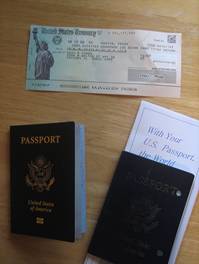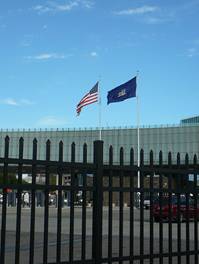Summer has arrived in Beijing and, like many others, our family has decided to take the cue and make a run for it. We’d decided on the beach awhile back, after our first family beach vacation in Hainan. There aren’t many places where you can reasonably take an almost 2 year old and expect him to have a good time, but the beach is one of them. Having grown up on the beach myself, I have many fond memories of childhood summers spent splashing in the waves and building sandcastles, and I am eager for my son to have the same experiences. But which beach would we chose for our summer vacation. My husband, not really the most intrepid of all travelers, was angling for Beidaihe, the beach where Mao used to spend his summers, about 5 hours from Beijing by train. I, on the other hand, was longing for something a bit more tropical, having a sneaking suspicion that Beidaihe would not be particularly impressive after our winter in Hainan. I was thinking more along the lines of Thailand. Having lived in China for six years, tragically I have never been to Thailand. I did make a trip to Laos several years ago, but Laos does not have white sand beaches and turquoise waters. So I spent several weeks selling my husband on the idea of Thailand and when finally he came around we went about planning our international excursion.

Photo: flydime
However, our plans soon hit a snag, and that snag is called Chinese bureaucracy. While I had considered my husband’s need for a Thai visa, I had not considered the fact that my son, with his brand new blank American passport, will apparently not be allowed to leave the country without us first jumping through various hoops in order to acquire him an entry/exit permit. This is where things get tricky. China doesn’t recognize dual citizenship, and yet, any child born to at least one Chinese citizen parent in China is automatically considered a Chinese citizen, regardless of any other nationality that the parents may have applied for. Confused yet? What this means is that although my son had an American passport, as is his right being the son of an American citizen, China will not recognize his American citizenship until he actually uses that passport, thus, I suppose officially “renouncing” his Chinese citizenship. In order to use his passport, he must exit the country and then re-enter on his American passport, but without a Chinese passport the only way he can do this is with an exit entry permit. To make matters even more complicated, this entry exit permit supposedly can’t be applied for in Beijing, but instead we need to return to the city where my son was born, Kunming, and apply for it there.
Does all of this sound needlessly complicated? Probably so, because it is. In other countries which DO allow dual citizenship, what we would have done, way back when my son was first born, would have been apply for his Chinese hukou and Chinese passport, and he could have, like other dual citizens in places like Japan, Austria, France and Australia, traveled out of the country on one passport and into other countries on another. What instead will happen, if we can still pull off our trip to Thailand, that is, is that we will take him out of the country on this permit, where we will then apply for a long term, “visiting relatives” visa, the same one that I myself hold. So my son also becomes a permanent traveler in the country where he was born, rather than holding two passports which both acknowledge a separate but equally important part of his identity.


Photos: Kris Cohen (l) jimcchou (r)
For our son, when we chose his nationality, it was not that we did not want Chinese citizenship for him, but more that we foresaw a future in which he would be able to attend American colleges without paying “international student” tuition (which is usually many times that of local tuition), where he could travel back and forth with us freely, and where he might one day decide to settle down and raise his own family. If he were a Chinese citizen, rather than an American citizen, these things would be near impossible. We wish that the choice of American citizenship did not necessarily mean the rejection of Chinese citizenship, but that is a reality that has been forced upon us. So when we come back from Thailand (if the red tape doesn’t strangle us on the way out) we will present my son’s American passport at the border and he’ll get his first of many Chinese visas, and officially become a visitor in the country of his birth. While he’ll be too young to remember, and probably more interested in the drug-sniffing dogs at customs than the people stamping his passport, the moment will be bittersweet for his father and I, as our son will officially gain one nationality, but lose another.
***
Related Links
Don't Have $500,000? You’re Staying a Semi-Permanent Resident
Places that Will Blow You Out of the Water-Beidaihe
Employer or Agency? How to Avoid Visa Vengeance
Warning’╝ÜThe use of any news and articles published on eChinacities.com without written permission from eChinacities.com constitutes copyright infringement, and legal action can be taken.
All comments are subject to moderation by eChinacities.com staff. Because we wish to encourage healthy and productive dialogue we ask that all comments remain polite, free of profanity or name calling, and relevant to the original post and subsequent discussion. Comments will not be deleted because of the viewpoints they express, only if the mode of expression itself is inappropriate.
Please login to add a comment. Click here to login immediately.